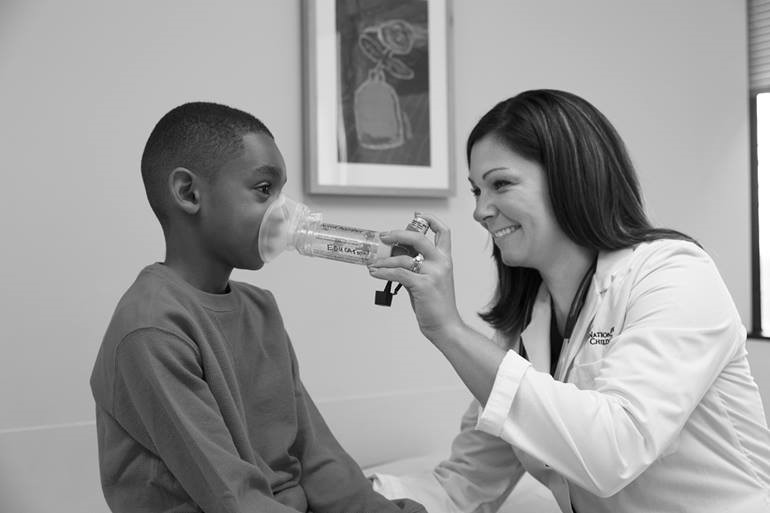9 Facts About the COVID-19 Vaccine
9 Facts About the COVID-19 Vaccine https://pediatricsnationwide.org/wp-content/uploads/2021/05/AdobeStock_66266246-1024x683.jpeg 1024 683 Abbie Miller Abbie Miller https://pediatricsnationwide.org/wp-content/uploads/2023/05/051023BT016-Abbie-Crop.jpg- May 25, 2021
- Abbie Miller

COVID-19 is a disease caused by the SARS-CoV-2 virus. In the United States, three vaccines are approved for emergency use, those produced by Pfizer, Moderna and Johnson & Johnson (J&J). These vaccines dramatically reduce your risk of getting severely ill or dying from COVID-19. The vaccines are also being shown to reduce the spread of the virus from person to person.
The Moderna and J&J vaccines are currently approved for use in people over the age of 18 years. The Pfizer vaccine approval was recently expanded down to the age of 12 years as a result of additional clinical trials in adolescents. Both Moderna and Pfizer require a series of two shots, while the J&J vaccine only requires one injection. Notably, a person is not “fully immunized” until two weeks after the final dose in their series.
As the vaccines are becoming more readily available, primary care providers and pediatricians are likely to get a lot of questions from parents, patients and even the community.
To help, we’ve put together a list of nine facts everyone should know about the COVID-19 vaccine.
1. You cannot get COVID-19 from the vaccine.
It is impossible to get COVID-19 from the vaccine. None of the vaccines contain the entire, alive COVID-19 virus. The vaccine has small portions of inactive virus to teach our bodies how to recognize the COVID-19 virus. The memory of this virus helps our bodies fight back quicker and stronger so even if we are exposed, we do not get critically ill.
It takes about two weeks after you complete the vaccine series for it to become fully effective. You should still take precautions including masking, handwashing and social distancing until two weeks after your second shot of Moderna and Pfizer and for two weeks after your J&J vaccine.
2. The COVID-19 vaccines are safe.
All the available vaccines have been proven to be very safe for people. This includes many races and ages. These vaccines went through the same testing process as the vaccines for tetanus and polio.
In fact, prior to initial emergency approval, the Pfizer vaccine had been tested in more than 40,000 people. Since the vaccines have become more widely available, millions of people have received the vaccines, with any correlated adverse events being closely monitored and taken seriously.
3. Anyone can get the COVID-19 vaccine free of charge.
All the approved vaccines for COVID-19 are FREE to the public. You do not need to show proof of being a U.S. citizen resident when you get the vaccine. You may be asked for an insurance card, but you cannot be turned away if you do not have insurance.
4. The COVID-19 vaccine will not cause you to become sick.
You may have brief symptoms as your immune system responds to the vaccine. However, this is expected and is not a sign that you are now sick or very ill. The most common symptoms reported are arm soreness, headache, tiredness and fever. If you get any symptoms, most only last 1 to 2 days. These symptoms are a sign that your body is building up protection against COVID-19. Some people have no symptoms at all. The vaccine is still working.
5. The COVID-19 vaccine (or any mRNA-based vaccine) cannot change human DNA.
In each of our body’s cells, the genetic information housed in the nucleus, known as DNA, holds all the information a cell needs to function. Outside of the nucleus, mRNA directs the production of proteins and other molecules needed for the cell to thrive. One way to think of it is like this: If DNA is an architectural library, then you can think of mRNA as the contractor’s blueprints for each component. When the COVID-19 vaccine delivers the mRNA instructions to the cell, they do get put in the construction que but they do not get added to the library.
6. COVID-19 vaccines are safe for women who are breastfeeding.
Women who are breastfeeding are encouraged to get vaccinated against COVID-19. The vaccine protects the mother, and important antibodies may be transmitted to the baby as well. This protects her baby who is too young to get the vaccine. There is no evidence that it will harm either mother or baby.
7. Women who are now or want to become pregnant in the future are encouraged to get vaccinated against COVID-19.
There is no evidence to suggest that the COVID-19 vaccine is not safe during pregnancy. The risk of getting sick with COVID-19 is much greater than any potential risk from getting the vaccine.
8. Even if you have already had COVID-19, you should still get the vaccine.
After you get COVID- 19, we do not know how long your body is protected from the virus. Even if you have already tested positive for COVID-19, you can still get infected again. Vaccines cover many different strains and offer the best way to protect you against COVID-19.
9. The COVID-19 vaccines do not contain animal products or common food allergens.
None of the approved COVID-19 vaccines contain any animal products (such as egg, gelatin or pork). They are kosher, halal and free of preservatives. The COVID-19 vaccines are safe for people with food allergies.
Need resources for your families? Get these fast facts as a Helping Hands pdf.
Acknowledgements:
Thank you to Cristina Tomatis Souverbielle, MD, Meg Barcroft, MD, Amudha Pazanisamy, MD, Michael Patrick, MD, and Sarah Denny, MD, for developing the Helping Hands and contributing to this post.
Image credit: Adobe Stock
About the author
Abbie (Roth) Miller, MWC, is a passionate communicator of science. As the manager, medical and science content, at Nationwide Children’s Hospital, she shares stories about innovative research and discovery with audiences ranging from parents to preeminent researchers and leaders. Before coming to Nationwide Children’s, Abbie used her communication skills to engage audiences with a wide variety of science topics. She is a Medical Writer Certified®, credentialed by the American Medical Writers Association.
-
Abbie Millerhttps://pediatricsnationwide.org/author/abbie-miller/
-
Abbie Millerhttps://pediatricsnationwide.org/author/abbie-miller/
-
Abbie Millerhttps://pediatricsnationwide.org/author/abbie-miller/
-
Abbie Millerhttps://pediatricsnationwide.org/author/abbie-miller/
- Posted In:
- In Brief







